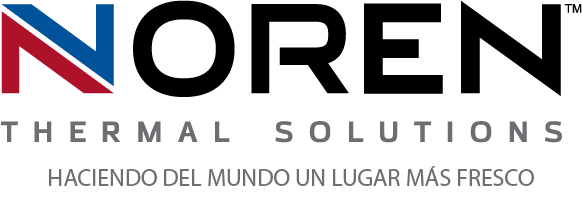 Several decades ago, computers with any kind of real power were so large they needed entire rooms dedicated to housing their electrical enclosures. Their size made it reasonable to have equally large air conditioning equipment nearby to cool the enclosures and prevent them from overheating. However, it wasn’t long before computer technology was miniaturized to the point where air conditioners no longer made sense as cooling solutions. Instead, designers and engineers turned increasingly more to heat exchangers to provide the compact, high-performance thermal management that their innovative technology needed. (more…)
Several decades ago, computers with any kind of real power were so large they needed entire rooms dedicated to housing their electrical enclosures. Their size made it reasonable to have equally large air conditioning equipment nearby to cool the enclosures and prevent them from overheating. However, it wasn’t long before computer technology was miniaturized to the point where air conditioners no longer made sense as cooling solutions. Instead, designers and engineers turned increasingly more to heat exchangers to provide the compact, high-performance thermal management that their innovative technology needed. (more…)
A Few Surprising Things About Modern Heat Exchangers
 Heat exchangers have been around long enough that many of their most common benefits are well-known across virtually all industries. For example, the minimal costs and energy usage involved with their implementation have become major talking points about the advanced thermal management solutions. However, there are a few things about heat exchangers that aren’t as well known beyond the specific applications that utilize those aspects, including the facts that they can NEMA certified and offer below-ambient cooling, when necessary. (more…)
Heat exchangers have been around long enough that many of their most common benefits are well-known across virtually all industries. For example, the minimal costs and energy usage involved with their implementation have become major talking points about the advanced thermal management solutions. However, there are a few things about heat exchangers that aren’t as well known beyond the specific applications that utilize those aspects, including the facts that they can NEMA certified and offer below-ambient cooling, when necessary. (more…)
A Few Considerations for Cooling Control Panels
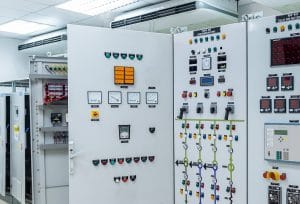 These days, electrical thermal management can mean a wide variety of things, depending on the company and industry that you’re talking about. However, the most common meaning involves cooling control panels and other types of electrical enclosures, which can often become a significant burden if the right solutions aren’t implemented. Fortunately, many of the considerations that come with cooling control panels are what make heat exchangers such a beneficial solution. They address them all with optimal efficiency and, generally, at a much lower cost to companies than more traditional solutions. (more…)
These days, electrical thermal management can mean a wide variety of things, depending on the company and industry that you’re talking about. However, the most common meaning involves cooling control panels and other types of electrical enclosures, which can often become a significant burden if the right solutions aren’t implemented. Fortunately, many of the considerations that come with cooling control panels are what make heat exchangers such a beneficial solution. They address them all with optimal efficiency and, generally, at a much lower cost to companies than more traditional solutions. (more…)
Important Functions of Modern Heat Exchangers
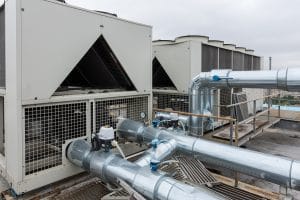 Besides making electrical thermal management more cost-effective, one of the greatest advantages of modern heat exchangers is that they’re appropriate for a wide variety of functions across even more various applications. Their versatility is largely due to the fact that they work by absorbing electrical waste heat and transferring it with optimal efficiency and minimal energy costs. For processes that involve various thermal management requirements, heat exchangers can often provide the optimal solution for all of them. (more…)
Besides making electrical thermal management more cost-effective, one of the greatest advantages of modern heat exchangers is that they’re appropriate for a wide variety of functions across even more various applications. Their versatility is largely due to the fact that they work by absorbing electrical waste heat and transferring it with optimal efficiency and minimal energy costs. For processes that involve various thermal management requirements, heat exchangers can often provide the optimal solution for all of them. (more…)
Improving Products with Help from Heat Exchanger Tech
 In many industrial and manufacturing circles, heat exchangers have become a superstar in electrical thermal management. In many ways, companies’ customers benefit, as well, though the ways in which they do so are not always as obvious. Nevertheless, the same streamlined thermal management capabilities that make heat exchangers valuable to manufacturing equipment also make them a highly reliable and more affordable solution for cooling many modern consumer technologies. This has given many manufacturers the ability to pass on the advantages of improved thermal management to their products and consumers. (more…)
In many industrial and manufacturing circles, heat exchangers have become a superstar in electrical thermal management. In many ways, companies’ customers benefit, as well, though the ways in which they do so are not always as obvious. Nevertheless, the same streamlined thermal management capabilities that make heat exchangers valuable to manufacturing equipment also make them a highly reliable and more affordable solution for cooling many modern consumer technologies. This has given many manufacturers the ability to pass on the advantages of improved thermal management to their products and consumers. (more…)
Things Companies Save Thanks to Heat Exchangers
 The ability to reduce costs and streamline operations is typically what makes any new technology most beneficial to companies. For example, computerized and automated systems boost productivity by taking over repetitive tasks. Heat exchangers reduce costs and further streamline operations by creating an efficient and eco-friendly method of managing electrical waste heat. By simply making electrical cooling more efficient, heat exchangers have led to a wide variety of savings and benefits that companies in all industries can take advantage of. (more…)
The ability to reduce costs and streamline operations is typically what makes any new technology most beneficial to companies. For example, computerized and automated systems boost productivity by taking over repetitive tasks. Heat exchangers reduce costs and further streamline operations by creating an efficient and eco-friendly method of managing electrical waste heat. By simply making electrical cooling more efficient, heat exchangers have led to a wide variety of savings and benefits that companies in all industries can take advantage of. (more…)
Thermosyphons and Phase-Change Cooling: Heat Exchangers’ Secret Weapons
 The secret to heat exchangers’ advanced thermal management capabilities lies in their innovative approaches to heat transfer. For example, many heat exchangers utilize mechanisms known as thermosyphons, which combine the natural forces of phase-change cooling and gravity to create an efficient, continuous heat transfer loop. Eco-friendly solutions such as thermosyphons eliminate the need for equipment such as air conditioning or air compressors, allowing users to benefit from more energy and cost-efficient electrical thermal management. (more…)
The secret to heat exchangers’ advanced thermal management capabilities lies in their innovative approaches to heat transfer. For example, many heat exchangers utilize mechanisms known as thermosyphons, which combine the natural forces of phase-change cooling and gravity to create an efficient, continuous heat transfer loop. Eco-friendly solutions such as thermosyphons eliminate the need for equipment such as air conditioning or air compressors, allowing users to benefit from more energy and cost-efficient electrical thermal management. (more…)
What Cold Plates Mean for Heat Exchangers
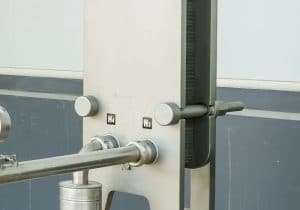 As heat exchangers and the technologies that they’ve been created to cool have evolved, the methods by which they achieve their goals have also grown more innovative. For example, modern heat exchangers come in several different forms and accomplish a wide variety of goals, such as cold plate heat exchangers that offer broad, high-performance thermal management for many different types of applications. (more…)
As heat exchangers and the technologies that they’ve been created to cool have evolved, the methods by which they achieve their goals have also grown more innovative. For example, modern heat exchangers come in several different forms and accomplish a wide variety of goals, such as cold plate heat exchangers that offer broad, high-performance thermal management for many different types of applications. (more…)
Why Heat Exchangers Have Become an Industrial Necessity
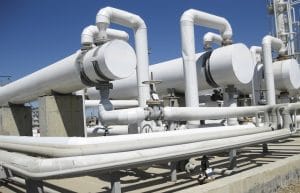 Sometimes, new technology is a luxury that only large, well-established companies can afford to implement. The technology may grow more affordable over time, but in many cases, it isn’t something companies absolutely require to remain competitive in their markets. However, sometimes, a form of technology arrives that changes the way things are done entirely. For instance, ever since companies began implementing heat exchangers for their electrical cooling needs, the advanced thermal management solutions have become essential for most industries, and for many different reasons. (more…)
Sometimes, new technology is a luxury that only large, well-established companies can afford to implement. The technology may grow more affordable over time, but in many cases, it isn’t something companies absolutely require to remain competitive in their markets. However, sometimes, a form of technology arrives that changes the way things are done entirely. For instance, ever since companies began implementing heat exchangers for their electrical cooling needs, the advanced thermal management solutions have become essential for most industries, and for many different reasons. (more…)
What Electrical Cooling Looks Like for Automated Tech
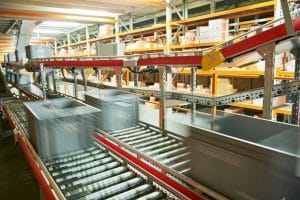 Technology comes in so many different forms that it now dominates nearly every aspect of society. Today, many of those forms involve some form of smart technology and/or automated applications that require little or no interaction from humans to operate properly. However, these technologies were not possible until modern heat exchangers made electrical thermal management simpler and more efficient. Automated technology, in particular, is an excellent example. You can’t set traditional cooling solutions like air conditioners to run continuously and then leave them alone without them using up large amounts of energy and then breaking down. (more…)
Technology comes in so many different forms that it now dominates nearly every aspect of society. Today, many of those forms involve some form of smart technology and/or automated applications that require little or no interaction from humans to operate properly. However, these technologies were not possible until modern heat exchangers made electrical thermal management simpler and more efficient. Automated technology, in particular, is an excellent example. You can’t set traditional cooling solutions like air conditioners to run continuously and then leave them alone without them using up large amounts of energy and then breaking down. (more…)

